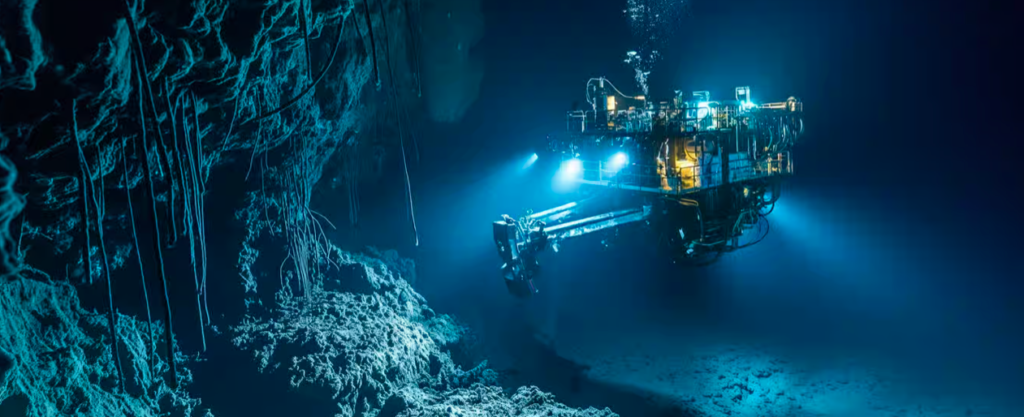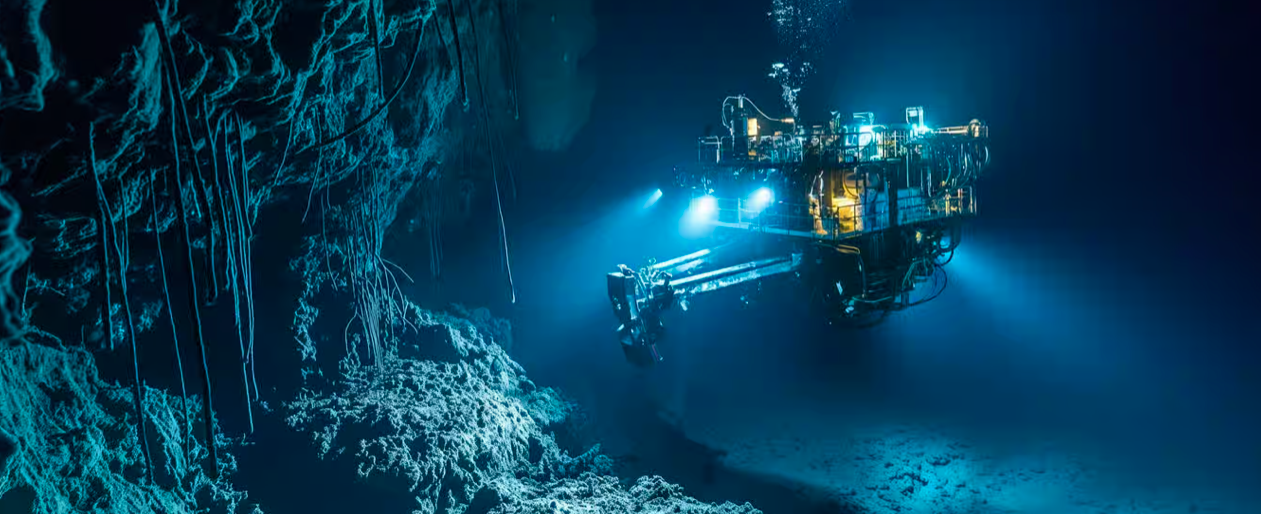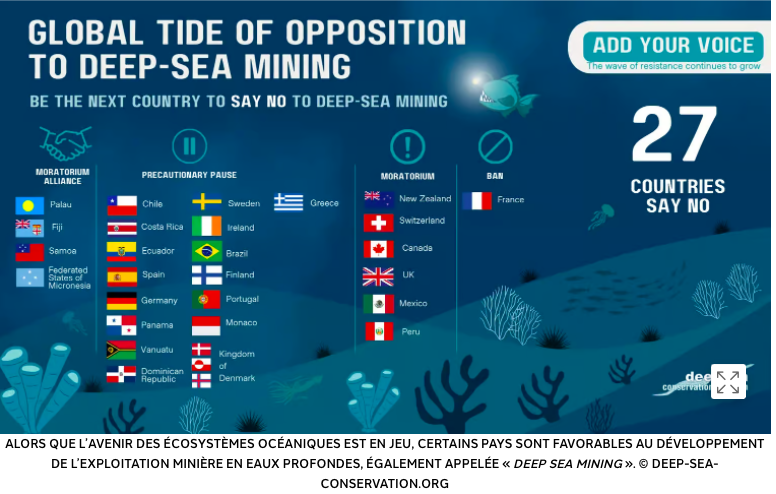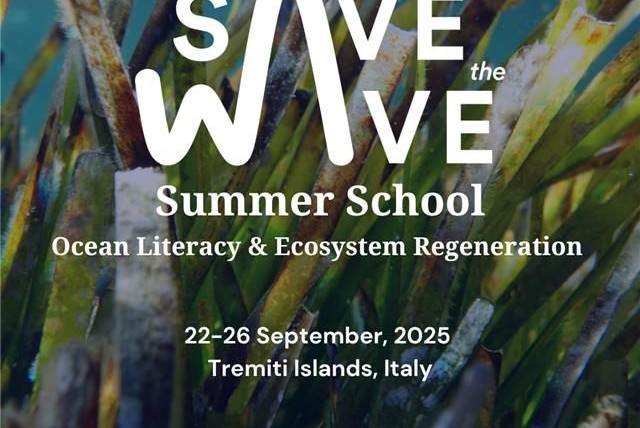Monday July 15 marks the start of negotiations within the International Seabed Authority, which is meeting in Jamaica. Between the adoption of a risky mining code and a controversial election, the ocean floor is highly unstable.

The future of deep-sea mining is currently at the heart of debates within the International Seabed Authority (ISA). Its 168 member states are gathered for the 29th session, which kicks off on Monday July 15 with a Council meeting in Kingston, Jamaica. On the agenda: the election of a new Secretary General, and discussion of a proposed moratorium on seabed mining.
When the Earth is exhausted, the ocean takes over
Although this frequency goes against the advice of scientists and local populations, under the mandate of Michael Lodge, the current IAMF Secretary General, the Council meets three times a year. Its objective: to try to rapidly finalize negotiations on rules for the exploitation of marine minerals in the international zone.
During the Council meeting, member states intend to continue discussions on the draft adoption of a mining code, agreed in March, which establishes the criteria for private companies to deploy robots in the abyssal depths to extract metals in the form of nodules – aggregates that form over a period of millions of years.
Indeed, large global reserves of critical minerals lie at the bottom of the oceans, attracting growing interest from companies in the face of rising demand. The latter is fuelled by the global transition to green technologies, increasing consumption of minerals such as nickel, copper and cobalt. Intensified extraction of terrestrial resources is no longer sufficient, and industrialists are turning their attention to the oceans, threatening their biodiversity.
However, the debate is moving forward, albeit torn between increasingly extreme divergences: a discussion on the need for a general policy on marine environmental protection has finally been included on the agenda of the Assembly meeting, after having been blocked last July 2023 by pro-mining countries,
Does the future of the seabed depend on elections?
The final day of the Assembly meeting, August 2, will be marked by the election of a new Secretary General to head the IAMF. Despite the controversy surrounding Michael Lodge, accused of conflicts of interest and misuse of funds, the current Secretary General is seeking a third term. In a questionable egalitarian context – no woman has ever been appointed Secretary General of the IAMF – Brazilian Leticia Carvalho is presenting herself as an alternative candidate to refocus the organization on environmental preservation, rather than commercial interests.
The NGO Greenpeace France calls on the future French government to actively support the moratorium, and to use its diplomatic influence to ensure its adoption, also recalling the United Nations Conference on the Oceans (UNOC) scheduled to take place in Nice in June 2025.
Source: Futura




